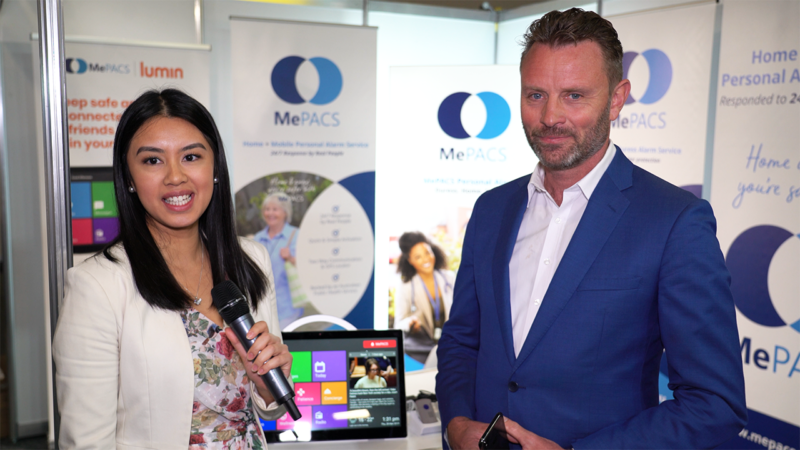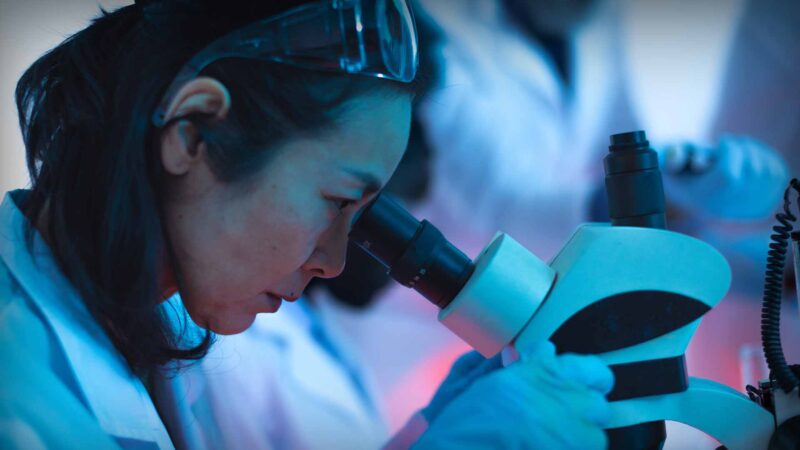UPSKILLING AND EMPOWERING HEALTH PROFESSIONALS TO SUPPORT PRECONCEPTION TO PRE-SCHOOL LEVEL HEALTH CARE Health and Wellbeing Queensland launches new podcast series with experts across allied health and primary care
With
Dr Robyn Littlewood, Chief Executive
Health and Wellbeing Queensland
Fiona Nave, Principal Lead & Advanced Practising Dietician
Health and Wellbeing Queensland
Dr Terri-Lynne South, GP, Accredited Practicing Dietitian
& Guest on Episode 1 Preconception healthcare
Dr Shelley Wilkinson, Advanced Accredited Practising Dietitian
& Guest on Episode 1 Preconception healthcare
AUSTRALIAN HEALTH JOURNAL SEGMENT
Filmed in Brisbane | May 2025
A new podcast series, developed by Health and Wellbeing Queensland, is designed to upskill and empower health professionals in their support of parents from preconception through to the pre-school years.
Clinician’s Guide to the First 2000 Days follows the success of Health and Wellbeing Queensland’s first podcast series Clinician’s Guide to Healthy Kids, launched in 2023. Both focus on supporting health professionals to have effective conversations on positive health behaviours.
The podcast series is one of the ways Health and Wellbeing Queensland is supporting health professionals in delivering comprehensive, world-class healthcare.
‘The first 2000 days of life are critical for long-term development and prevention of chronic disease across the lifespan,’ said Dr Robyn Littlewood, Health and Wellbeing Queensland’s Chief Executive.
‘When children are supported with early, evidenced-based prevention initiatives during this critical and formative years, combined with health-promoting environments and ongoing care across the lifespan, this helps lay the foundation for life-long health and wellbeing, including reducing the risk of chronic diseases such as cancer, heart disease and diabetes.
‘Health and Wellbeing Queensland has a key role in highlighting the importance of prevention during this critical time, raising awareness, and providing education and resources to support our Health Professional workforce.’
Delivered over nine episodes, Clinician’s Guide to the First 2000 Days is hosted by Queensland GP Dr Sam Manger.
Each episode, Dr Manger interviews two subject matter experts, with Accredited Practicing Dietitian Dr Shelley Wilkinson and GP Dr Terri-Lynne South, lending their expertise to episode one.
In addition to preconception care, the nine episodes also explore antenatal care, postnatal care for mothers and infants, and toddler growth and development.
The Clinician’s Guide to the First 2000 Days episodes can be listened on Apple Podcasts, Spotify, Google Podcasts, Pandora, or your favourite podcast app.
Source: Adapted from Health and Wellbeing Queensland media release
You Might also like
-
Lasers in dental treatment without needles and drills
In 2017, Dr. Omar Zuaiter and Alaa Habeb launched Dentroid, a dental technology startup with a mission to make dentistry a kinder and friendlier experience for patients and dentists using photonics (using laser technology) and robotics, as alternatives to needles, drills and sprays. The vision for the startup is to have dentistry adopt laser technology, addressing the root causes of dental pain & anxiety, and create a pain-free dental experience.
-
Australian Healthcare Week 2019: Pitch Fest Finalist Lumin
Startup company Lumin was a Pitch Fest Finalist at last week’s Australian Healthcare Week Expo in Sydney. The Lumin platform is used in aged care where loneliness and isolation can be a trigger for stroke and dementia. Lumin helps the connection to care providers, family members and duress monitoring services in a device that has been designed for those with dementia, vision impairment or find complex devices difficult to use.
Managing Director and Co-Founder Paul Wilson spoke at the Mepacs booth with Anne Dao from Australian Health Journal about the market they target and the design of the user experience, including the remote servicing and monitoring. The integration allows the monitoring team in the call centre see and hear the personal raising the alarm. Mepacs is a provider of personal duress alarms and have teamed up with Lumin.
Post Views:
1,762 -
Health Minister appoints Chair to National One Stop Shop Program
The Australian Government has appointed Emeritus Professor Ian Chubb AC, FAA FTSE to lead key reforms as Chair of the Inter-Governmental Policy Reform Group (IGPRG) for health and medical research, including clinical trials.
Minister for Health and Aged Care, The Hon Mark Butler MP on the selection and appointment said, “Professor Chubb has dedicated his career to improving health and medical research and education in this county and I am pleased he has agreed to share his knowledge and experience through the IGPRG.



